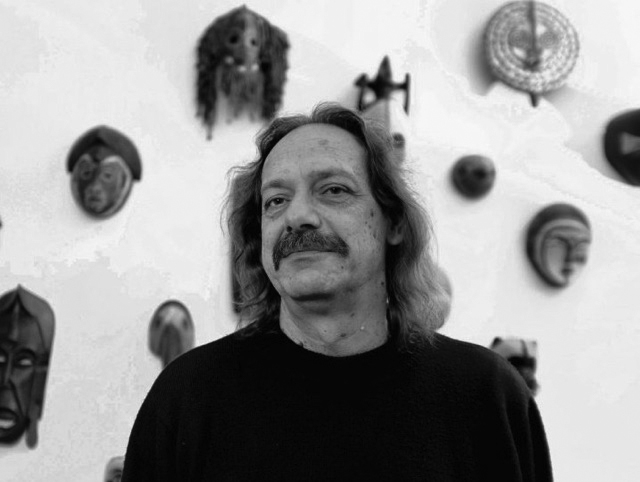
Monday, September 16th, 2019
6:30-9:00 PM
CUNY Graduate Center,
Room 6112
365 5th ave, NY NY 10016
Join the Center for Place, Culture and Politics at the CUNY Graduate Center and Common Notions as we discuss Stavros Stavrides’ recently published book, TOWARDS THE CITY OF THRESHOLDS.
Stavros Stavrides will present his book and discuss the broader themes raised in his work, including the urban commons, borders, and the “thresholds” crossed in moments of uprisings, insurrections, and occupations.
Joining him in conversation is David Harvey, Distinguished Professor of anthropology and geography at the CUNY Graduate Center and Rob Robinson, housing activist and organizer of the Take Back the Land Movement.
In recent years, urban uprisings, insurrections, riots, and occupations have been an expression of the rage and desperation of our time. So too have they expressed the joy of reclaiming collective life and a different way of composing a common world. At the root of these rebellious moments lies thresholds—the spaces to be crossed from cities of domination and exploitation to a common world of liberation.
About TOWARDS THE CITY OF THRESHOLDS:
In recent years, urban uprisings, insurrections, riots, and occupations have been an expression of the rage and desperation of our time. So too have they expressed the joy of reclaiming collective life and a different way of composing a common world. At the root of these rebellious moments lies thresholds—the spaces to be crossed from cities of domination and exploitation to a common world of liberation.
Towards the City of Thresholds is a pioneering and ingenious study of these new forms of socialization and uses of space—self-managed and communal—that passionately reveals cities as the sites of manifest social antagonism as well as spatialities of emancipation. Activist and architect Stavros Stavrides describes the powerful reinvention of politics and social relations stirring everywhere in our urban world and analyzes the theoretical underpinnings present in these metropolitan spaces and how they might be bridged to expand the commons.
What is the emancipatory potential of the city in a time of crisis? What thresholds must be crossed for us to realize this potential? To answer these questions, Stavrides draws penetrating insight from the critical philosophies of Walter Benjamin, Michel Foucault, and Henri Lefebvre—among others—to challenge the despotism of the political and urban crises of our times and reveal the heterotopias immanent within them.
Stavros Stavrides is an architect and professor teaching at the National Technical University of Athens on housing and public space design as well as on the meaning of metropolitan experience. Stavrides’s work on political autonomy in contemporary crises-governed cities provides timely urban theory to theorize forms of emancipating spatial practices and urban commoning, illuminated by an experience and knowledge of protest and rebellion in Athens since 2008. In addition to Towards the City of Thresholds, he has published six books and numerous articles. His recent books include: The Symbolic Relation to Space, Advertising and the Meaning of Space, The Texture of Things, From the City-as-Screen to the City-as-Stage, Suspended Spaces of Alterity, Common Space: The City as Commons, as well as the forthcoming Common Spaces of Urban Emancipation.
David Harvey is a Distinguished Professor of Anthropology & Geography at the Graduate Center of the City University of New York (CUNY), the Director of Research, Center for Place, Culture and Politics, and the author of numerous books. He has been teaching Karl Marx’s Capital for over 40 years.
Rob Robinson is an activist in the housing and land rights movement. He is a leader of the Take Back the Land Movement and has worked with countless homeless communities around the globe; his activism is informed by his personal experience with homelessness.
This event is free and open to the public. It is sponsored by The Center for Place, Culture, and Politics.



